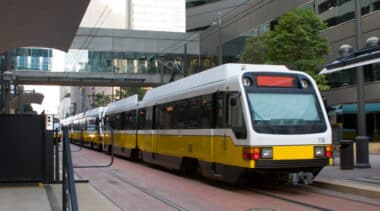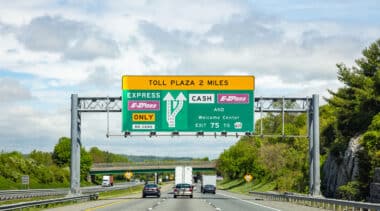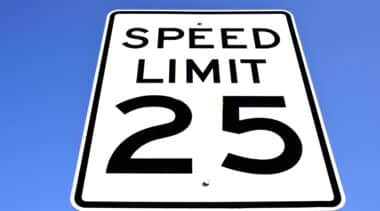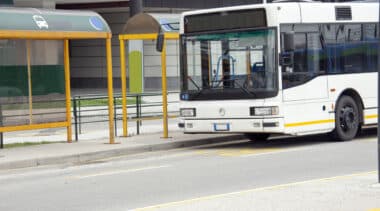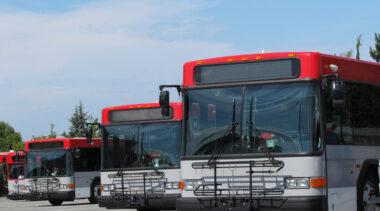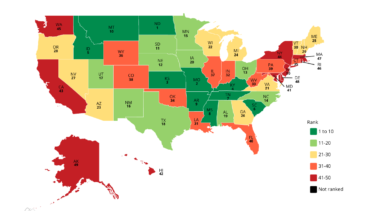Baruch Feigenbaum is Senior Managing Director of Transportation Policy at Reason Foundation.
Feigenbaum has a diverse background researching and implementing transportation issues including revenue and finance, public-private partnerships, highways, transit, high-speed rail, ports, intelligent transportation systems, land use, and local policymaking. Prior to joining Reason, Feigenbaum handled transportation issues on Capitol Hill for Rep. Lynn Westmoreland.
Feigenbaum is a member of the Transportation Research Board Bus Transit Systems and Intelligent Transportation Systems Committees. He is vice president of programming for the Transportation and Research Forum Washington Chapter, a reviewer for the Journal of the American Planning Association (JAPA), and a contributor to Planetizen. He has appeared on NBC Nightly News and CNBC. His work has been featured in the Washington Post, The Wall Street Journal and numerous other publications.
Feigenbaum earned his master's degree in Transportation Planning with a focus in engineering from the Georgia Institute of Technology.
-
How to Refocus the Federal Share of Transit Funding So Maintenance Is Prioritized
Many of the mass transit systems across the country are in poor shape, in part because they direct money to costly new capital projects rather than needed maintenance.
-
Why Congress Should Expand the Use of Private Activity Bonds For Infrastructure
For megaprojects, $12 billion in private activity bonds led to $45 billion in infrastructure project activity over the past 15 years.
-
Is Level of Service or Vehicle-Miles Traveled a Better Way to Measure Traffic Congestion?
Part six of Reason's Debatable Ideas series examines the best method to analyze travel times and traffic congestion in a region.
-
It Is Time For a Market Approach to Parking
For too long, cities have prioritized subsidizing free parking in order to allow ease of mobility by automobiles, but economically this does not make sense.
-
Should the Pandemic Cause Virginia to Revisit Its $3.7 Billion Rail Plan?
Virginia needs to prioritize its resources to fund the transportation projects that offer commuters and taxpayers the biggest bang for their buck.
-
Debatable Ideas: Examining Key Transportation Issues, Myths and Misconceptions
In this series, Reason's transportation policy analysts examine key infrastructure issues, including common myths and misconceptions found in today's policy debates.
-
Do Lower Speed Limits Make Roadways Safer?
Part four of Reason's Debatable Ideas series examines the best practices for setting speed limits, especially on urban arterials.
-
Help Solve Transit Deserts by Investing in Bus Service
Using the cost-per-trip metric would help reward transit agencies with high ridership and low costs, which should be a goal of any government program.
-
How Do High-Occupancy Toll Lanes Benefit All Income Groups?
In part one, Reason's Debatable Ideas series examines common myths and concerns about HOT lanes and how drivers, transit riders, and cities can benefit from them.
-
Transportation and COVID-19: A State Guide to Policy and Priorities
What states can do amidst today's uncertainty, with a policy focus on mitigating risks to public-sector transportation operations and infrastructure investments.
-
Maryland Tolling Project Faces Challenges From Environmental Opponents
Opponents of Maryland's I-270/I-495 managed lanes project are filing lawsuits designed to derail the public-private partnership.
-
Contracting Mass Transit Services
Transit contracting should always follow three principles: guaranteeing public control, promoting competition, and ensuring transparency.
-
Contracting Mass Transit Services: A How-to-Guide
This how-to guide shows how to successfully contract for mass transit services.
-
Michigan Wisely Looks to Tolling to Help Finance Road and Bridge Repairs
Tolling can be used as an effective tool and sustainable revenue source to help meet the state's transportation needs.
-
Despite Big Spending, California’s Highway System Ranks Among Worst in the Nation
California’s highways rank 43rd in the nation in overall cost-effectiveness and condition, according to Reason Foundation’s 25th Annual Highway Report.
-
Suburban Atlanta Voters Rejected a Tax Increase for Mass Transit, Again
Voters rejected a one percent sales tax increase for transit expansion for the second time in two years.
-
25th Annual Highway Report
The 25th Annual Highway Report measures the condition and cost-effectiveness of state-controlled highways in 13 categories, including pavement condition, traffic congestion, fatalities, and spending per mile.

